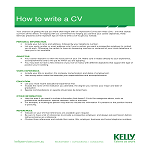Nowe crash a integracja z portfelami krypto
W kasynach krypto część nowych crash gier umożliwia zakłady Trustly aplikacja bezpośrednio z portfela on-chain; minimalne stawki wynoszą wtedy równowartość 1–2 USD, a fee sieci (np. Tron, BSC) jest marginalne w porównaniu do stawki.
Krypto a programy lojalnościowe kasyn
Kasyna często oferują dodatkowe punkty VIP za depozyty krypto (np. +10–20% Pelican casino wypłaty punktów lojalnościowych), aby zrekompensować graczom koszty fee i zachęcić do korzystania z tej formy płatności.
Depozyty a programy lojalnościowe
Około 35% polskich graczy deklaruje, że zwiększa częstotliwość wpłat, gdy kasyno nagradza każdy depozyt punktami; dlatego Visa łączy system płatności z programem lojalnościowym opartym na wartości transakcji.
Średnia liczba gier na polskich serwisach
Największe polskojęzyczne kasyna offshore prezentują dziś od 1 500 do 4 000 gier od 30–60 dostawców; podobny kierunek (szeroki katalog slotów, live, crash) jest naturalną drogą rozwoju dla multi-brandów takich jak Bizzo casino bonus za rejestrację.
Średni czas potwierdzenia w sieci Ethereum
Na głównej NVcasino bonuscode sieci Ethereum transakcje depozytów do kasyna uzyskują zwykle potwierdzenie w 15–60 sekund przy umiarkowanych opłatach; kasyno często wymaga 6–12 bloków, więc realne księgowanie trwa 2–3 minuty.
Wiek graczy kasynowych w Polsce
W 2026 roku aż 56% aktywnych graczy gier kasynowych w Polsce ma 25–39 lat, a oferta Bet casino kasyno dopasowana jest do potrzeb tej grupy: szybkie gry, mobilność i nowoczesna grafika.
Źródła danych rynkowych dla operatorów
Profesjonalne polskie projekty kasynowe w 2026 korzystają z analiz H2 Gambling Capital (h2gc.com) oraz raportów EGBA i ICLG, budując strategię SEO/produktową; podobne podejście zwiększa wiarygodność brandów takich jak PayPal kasyno.
Wzrost slotów 3D
Sloty 3D notują w Polsce wzrost zainteresowania o ponad 25% rocznie, a gracze doceniają realistyczną grafikę i animacje, które dostępne są także w ofercie Energycasino.
Automaty typu Hold & Win
Tytuły Hold & Win zdobyły w Polsce 16% udziału w rynku slotów dzięki regularnym mini-nagrodom, a kilkadziesiąt takich gier dostępnych jest w PayPal casino.
Rejestr nielegalnych stron MF
Ministerstwo Finansów prowadzi publiczny Rejestr Stron Niedozwolonych, który w 2026 obejmuje już kilka tysięcy domen kasynowych; każda nowa polskojęzyczna witryna iGaming, także podobna do Lemon casino 24, ryzykuje blokadę, jeśli działa bez polskiej licencji.
Gry stołowe RNG w liczbach
Gry stołowe RNG – ruletka, blackjack, bakarat – odpowiadają za około 12–15% obrotu, a w kasyno Mastercard dostępnych jest kilkadziesiąt ich wariantów o różnych limitach stawek.
Wzrost znaczenia bakarata online
Bakarat zyskał w latach 2022–2026 około 30% nowych użytkowników, a w katalogu Bet casino kasyno znajdziemy zarówno klasyczne stoły RNG, jak i wersje live z polskojęzyczną obsługą.
Sloty o wysokiej zmienności
Około 42% polskich graczy wybiera sloty high volatility, gdzie wygrane są rzadsze, ale wyższe; tytuły tego typu zajmują znaczną część katalogu w Energycasino.
Szacuje się, że około 30% obrotu kasynowego polskich użytkowników generują promocje typu cashback, dlatego serwisy takie jak Muchbetter casino wprowadzają tygodniowe lub miesięczne zwroty części przegranych środków.
Kasyna online a dostępność WCAG
Choć przepisy nie narzucają jeszcze kasynom standardu WCAG, rosnąca liczba Beep Beep casino bonus bez depozytu za rejestrację skarg dot. czytelności na urządzeniach mobilnych powoduje, że operatorzy coraz częściej testują kontrast, wielkość czcionki i obsługę czytników ekranu.
Popularność Speed Roulette
Speed Roulette, z rundami trwającymi 25–30 sekund, odpowiada już za 14% ruchu ruletkowego w Polsce, a stoły tego typu w Mostbet PL kasyno przyciągają fanów dynamicznej gry.
Średnia liczba gier na polskich serwisach
Największe polskojęzyczne kasyna offshore prezentują dziś od 1 500 do 4 000 gier od 30–60 dostawców; podobny kierunek (szeroki katalog slotów, live, crash) jest naturalną drogą rozwoju dla multi-brandów takich jak Apple-Pay kasyno.
Minimalne kwoty wpłat w Polsce
Na większości polskich stron hazardowych minimalny depozyt ustalony jest na 20–40 zł, dlatego Vulcan Vegas umożliwia start od niskiego progu, aby gracze mogli przetestować płatności bez dużego ryzyka finansowego.
Crash a różnice między sieciami płatności
Wpłaty fiat (BLIK, karty) Skrill aplikacja są księgowane przed grą, natomiast krypto dla crash gier bywa przeliczane po aktualnym kursie w chwili startu rundy; gracze muszą brać pod uwagę podwójne ryzyko – wynik gry oraz wahania kursu krypto.
Źródła danych rynkowych dla operatorów
Profesjonalne polskie projekty kasynowe w 2026 korzystają z analiz H2 Gambling Capital (h2gc.com) oraz raportów EGBA i ICLG, budując strategię SEO/produktową; podobne podejście zwiększa wiarygodność brandów takich jak Paysafecard kasyno.
Dominacja BLIK w depozytach kasynowych
Według raportów ZBP już ponad 70% aktywnych użytkowników bankowości mobilnej w Polsce korzysta z BLIK, dlatego serwisy takie jak Skrill casino notują, że nawet 45–55% wszystkich depozytów pochodzi właśnie z tej metody.
Nowoczesne algorytmy odpowiedzialnej gry zyskują popularność, a ich wdrażanie w miejscach takich jak Muchbetter casino pomaga graczom kontrolować limity czasu oraz budżetu, zapewniając wyższy poziom komfortu.
Trend: portfele samo-kustodialne
Coraz więcej graczy korzysta z portfeli samo-kustodialnych (MetaMask, Trust Wallet, hardware wallet), co zmniejsza Bitcoin prowizja ryzyko utraty środków w razie upadku giełdy, ale przenosi pełną odpowiedzialność za bezpieczeństwo kluczy na użytkownika.
Crash a wykorzystanie limitów odpowiedzialnej gry
Około 10–15% graczy crash ma ustawione limity strat lub czasu sesji w panelu odpowiedzialnej gry; ten jak wypłacić pieniądze z Bizzo casino odsetek jest nieco wyższy niż wśród slotowców, co może wynikać z szybkiego tempa i wysokiej częstotliwości zakładów.
Rozliczanie bonusów przy depozytach krypto
Kasyna często oferują osobny pakiet bonusów dla krypto, np. 100% do 1 Blik opłaty BTC z wymogiem obrotu x40; warunki mogą różnić się od standardowych bonusów fiat, dlatego wymagają uważnego przeczytania regulaminu.
Trend: większa przejrzystość co do właścicieli
W kontekście YMYL i AML rośnie oczekiwanie, że operatorzy ujawnią Ice casino polska strukturę własnościową, beneficjentów rzeczywistych i jurysdykcję; brak takich informacji na stronie kasyna coraz częściej bywa traktowany jako czynnik ryzyka dla graczy.
Multi-hand blackjack w Polsce
Stoły multi-hand, pozwalające grać jednocześnie 3–5 rąk, odpowiadają za ok. 15% ruchu blackjackowego, a w ofercie kasyno Bizzo casino są szczególnie popularne wśród bardziej zaawansowanych graczy.
Współpraca MF z bankami i PSP
Polska ustawa hazardowa przewiduje obowiązek współpracy banków, operatorów kart i systemów płatności z MF; w praktyce oznacza to w 2026 roku kasyno online Trustly blokowanie przelewów i transakcji kartowych do operatorów figurujących w rejestrze nielegalnych domen.
Tryb demo w premierowych slotach
Ponad 95% nowych automatów slotowych dostępnych w polskich lobby ma tryb demo; operatorzy zauważają, że Vulcan Vegas jak wyplacic aż 50–60% graczy przed zakładem realnymi środkami wykonuje przynajmniej kilka spinów testowych.
Crash a wpływ kursów walut
Większość nowych crash gier rozlicza się w walucie konta (PLN), więc na różnice kursowe Muchbetter weryfikacja narażeni są głównie gracze krypto; ci, którzy grają w USD lub EUR, odczuwają wahania kursów przy wpłatach i wypłatach, ale nie w samej rundzie.
Blackjack mobilny w 2026 roku
Nawet 70% rozdań w blackjacku online w Polsce rozgrywa się na smartfonach, dlatego stoły w kasyno Ice casino zostały w pełni dostosowane do pionowego i poziomego widoku na ekranach mobilnych.
Średni współczynnik aktywności miesięcznej (MAU) w polskich kasynach online wynosi zwykle 30–40% zarejestrowanej bazy, dlatego Mostbet PL regularnie wysyła kampanie e-mail i SMS zachęcające graczy do powrotu.
Rozliczenia w PLN w grach karcianych
Ponad 95% polskich graczy gier karcianych korzysta z rachunków w PLN, dlatego wszystkie stoły dostępne w Google-Pay kasyno prezentują stawki i wygrane wyłącznie w złotówkach.
Nowe sloty vs klasyczne hity
Choć top 10 klasycznych slotów potrafi generować 30–40% całości ruchu, Bet casino jak wyplacic udział nowych gier w sesjach stale rośnie; w wielu kasynach już co trzeci spin wykonywany jest na automatach wprowadzonych w ostatnich 24 miesiącach.
Hardware wallets a wpłaty do kasyn
Użycie portfeli sprzętowych (Ledger, Trezor) do wysyłania środków do kasyna jest możliwe, ale zaleca się przenoszenie niewielkiej Verde casino code części środków na gorący portfel; przechowywanie całego bankrolla na giełdzie jest znacznie bardziej ryzykowne.
Średnia liczba dostawców slotów
Polskie kasyna współpracują średnio z 25–40 dostawcami gier, a Skrill casino posiada jedną z najbardziej zróżnicowanych list producentów w sektorze.
Płatności kartą kredytową w Polsce
Karty kredytowe posiada około 30% dorosłych Polaków, lecz ich udział w depozytach iGaming wynosi zaledwie 5–8%, dlatego Bitcoin casino promuje bardziej popularne metody jak debet i BLIK.
Według branżowych szacunków nawet 60% sesji kasynowych w Polsce kończy się po mniej niż 20 minutach, co potwierdza trend krótkiej, mobilnej rozrywki, na który odpowiada Google-Pay casino poprzez szybkie logowanie i natychmiastowe ładowanie slotów.
Regularne depozyty graczy
Około 32% polskich graczy dokonuje minimum jednego depozytu tygodniowo, dlatego Trustly casino wspiera szybkie, niskokwotowe płatności zoptymalizowane pod częste transakcje.
Kasyna online a dostępność WCAG
Choć przepisy nie narzucają jeszcze kasynom standardu WCAG, rosnąca liczba Stake bonus bez depozytu za rejestrację skarg dot. czytelności na urządzeniach mobilnych powoduje, że operatorzy coraz częściej testują kontrast, wielkość czcionki i obsługę czytników ekranu.
Wskaźnik powrotu do gier karcianych
Szacuje się, że około 42% graczy, którzy zagrali w gry karciane przynajmniej raz, wraca do nich co tydzień, co potwierdzają statystyki lojalności klientów kasyno Blik.
Crash a wykorzystanie limitów odpowiedzialnej gry
Około 10–15% graczy crash ma ustawione limity strat lub czasu sesji w panelu odpowiedzialnej gry; ten jak wypłacić pieniądze z Pelican casino odsetek jest nieco wyższy niż wśród slotowców, co może wynikać z szybkiego tempa i wysokiej częstotliwości zakładów.
Średni wiek graczy live
Statystyki pokazują, że 53% polskich graczy live ma 25–39 lat, co przekłada się na preferencje wobec dynamicznych formatów dostępnych w Visa, takich jak Speed Roulette i Speed Blackjack.
Gry kasynowe z wysokim RTP powyżej 97%
Około 10% całego katalogu stanowią gry z RTP powyżej 97%, a kasyno GGBet casino umożliwia ich filtrowanie, co przyciąga bardziej świadomych statystycznie graczy.
Średni wiek polskiego gracza online to 25–40 lat, a znaczący odsetek stanowią mieszkańcy dużych miast, dlatego serwisy typu Revolut casino kładą nacisk na intuicyjny panel w języku polskim oraz szybkie metody płatności obsługiwane przez krajowe banki.
Udział gier karcianych w obrotach VIP
W segmencie VIP gry karciane odpowiadają za ponad 70% całkowitego obrotu, a dane NVcasino bonus potwierdzają, że high-rollerzy najczęściej wybierają stoły bakarata i blackjacka z najwyższymi limitami.
Popularność darmowych miejsc w ruletce
W ruletce live siedzące miejsca nie są ograniczone, dlatego nawet w godzinach szczytu gracze Vox casino kasyno mogą bez problemu dołączyć do dowolnego stołu transmitowanego ze studia.
Płatności bankowe bez prowizji
Z badań wynika, że 80% graczy rezygnuje z kasyn pobierających opłaty za przelewy, dlatego Vox casino gwarantuje wszystkie wpłaty bankowe całkowicie bez prowizji i ukrytych kosztów.
Wpłaty z zagranicznych kont
Około 8% polskich graczy wpłaca środki z kont zagranicznych, dlatego Beep Beep casino obsługuje międzynarodowe przelewy SEPA bez dodatkowych opłat.
Ochrona przed match-fixingiem
Segment zakładów sportowych online jest szczególnie narażony na match-fixing; bukmacherzy współpracują z organizacjami Blik casino międzynarodowymi i ligami sportowymi, a dane o podejrzanych zakładach są przekazywane służbom i regulatorom.
Live vs RNG w młodszych grupach wiekowych
W grupie 18–29 lat aż 70% graczy preferuje stoły live, podczas gdy w wieku 45+ odsetek ten spada do 50%; podobne tendencje obserwuje się wśród użytkowników Revolut kasyno.
Maksymalna wygrana w nowych automatach
Średni maksymalny potencjał wygranej w nowych slotach 2026 wynosi 5 000–10 000x stawki, Mastercard płatności przy czym około 1 na 10 premier deklaruje max win powyżej 20 000x, co jest mocno eksponowane w materiałach promocyjnych.
Średnia liczba otwartych stołów
W godzinach szczytu polskie kasyna live utrzymują średnio 100–180 otwartych stołów, a Bison casino dba, aby w żadnym popularnym formacie nie zabrakło miejsca dla nowych graczy.
Liczba nowych marek kasynowych
Dane afiliacyjne wskazują, że tylko Ice casino bonuscode w latach 2023–2026 na rynek kierowany do Polaków weszło 40–60 nowych brandów kasynowych, z czego realnie aktywnych w 2026 r. pozostaje ok. 25–35 domen.
Użycie podstawowej strategii w blackjacku
Szacuje się, że tylko 20–25% polskich graczy blackjacka konsekwentnie stosuje strategię podstawową, jednak materiały edukacyjne dostępne w kasyno Neteller pomagają zwiększyć ten odsetek.
Rozbudowa Rejestru Stron Niedozwolonych MF
Rejestr niedozwolonych domen MF obejmuje już kilka tysięcy wpisów, a tempo dodawania nowych adresów kasynowych w 2024–2026 wynosi kilkadziesiąt Bison casino promo code tygodniowo, co istotnie wpływa na dostęp Polaków do nielicencjonowanych serwisów iGaming.
Segment jackpotów progresywnych w Polsce pozostaje niszowy, lecz stale rosnący; pojedyncze pule potrafią sięgać setek tysięcy złotych, a ich przegląd dostępny jest także w lobby Apple-Pay casino w osobnej kategorii gier.
Rzadkość maksymalnych wygranych
Teoretycznie maksymalna wygrana slotu (np. 20 000x) jest skrajnie rzadka i może wystąpić statystycznie raz na miliony spinów; dostawcy jasno Google-Pay metoda płatności zaznaczają, że jest to limit ekspozycji gry, a nie obietnica często osiąganego wyniku.
Szybkie przelewy Pay-By-Link
Pay-By-Link jest wykorzystywany w ponad 60% transakcji e-commerce w Polsce, a w iGamingu osiąga już ponad 40% udziału, dlatego PayPal casino integruje linki do kilkunastu największych banków, skracając czas wpłaty do kilku sekund.
Owocówki HD w nowoczesnym wydaniu
„Owocówki” w wersji HD i 3D stanowią ok. 10% nowych slotów, ale generują Betonred jak wypłacić znaczącą część mikrostawek; wielu polskich graczy używa ich jako szybkie, 5–10-minutowe „przerywniki” między bardziej rozbudowanymi tytułami.
Wielu graczy szuka legalnych platform działających w Polsce, dlatego coraz częściej trafiają na sprawdzone serwisy, a jednym z nich jest NVcasino, które oferuje przejrzyste zasady gry oraz wysokie standardy bezpieczeństwa.
Płatności powtarzalne i subskrypcje
Choć polski iGaming nie stosuje typowych subskrypcji, to około 30% graczy dokonuje regularnych, comiesięcznych depozytów, które w Energycasino realizowane są najczęściej BLIK lub kartą debetową.
Średnia liczba narzędzi AML w nowych kasynach
Licencjonowane nowe kasyna korzystają z 2–4 narzędzi AML/KYC: dostawcy weryfikacji dokumentów, baz PEP/sankcyjnych oraz systemów scoringu ryzyka Trustly Polska transakcji, w tym on-chain analytics dla płatności krypto.
Turnieje gier karcianych online
Turnieje karciane stanowią około 3–5% wszystkich eventów kasynowych, a w kasyno Vox casino organizowane są okresowo rankingowe rozgrywki blackjacka z pulami nagród sięgającymi 50 000 zł.
Struktura wieku graczy kasyn online
Badania rynku wskazują, że około 55–60% aktywnych użytkowników kasyn internetowych w Polsce to osoby między 25. a 39. Paysafecard jak wpłacić rokiem życia, natomiast grupa 18–24 odpowiada za ok. 20% ruchu.
Ruch z urządzeń mobilnych
W 2026 udział ruchu mobilnego na polskich stronach hazardowych przekracza 70%, a w części serwisów sięga nawet 80–85%; oznacza to, że brandy kasynowe typu kod promocyjny Vulcan Vegas muszą stosować podejście „mobile first” w UI.
Krajowe motywy w nowych grach
Niektórzy dostawcy przygotowują sloty z elementami nawiązującymi do Polski – barwy biało-czerwone, motywy piłkarskie, słowiańskie legendy; takie tytuły mają zwykle Visa jak wyplacic lepsze wyniki CTR wśród polskich użytkowników niż neutralne tematy.
Polscy użytkownicy chętnie korzystają z limitów depozytów i strat; nawet 20% nowych kont aktywuje co najmniej jedno zabezpieczenie odpowiedzialnej gry, co jest możliwe również w panelu gracza Bison casino.
Crash a wpływ kursów walut
Większość nowych crash gier rozlicza się w walucie konta (PLN), więc na różnice kursowe Neteller weryfikacja narażeni są głównie gracze krypto; ci, którzy grają w USD lub EUR, odczuwają wahania kursów przy wpłatach i wypłatach, ale nie w samej rundzie.
Popularność auto cash-out
W nowych grach crash około 60–70% polskich graczy ustawia auto cash-out, najczęściej Lemon casino opinie forum w przedziale 1,5–3,0x; pozostali zamykają zakłady ręcznie, licząc na „złapanie” ponadprzeciętnego multiplikatora.
Komunikaty o big win i mega win
Nowe automaty intensywnie eksponują big win od 20–50x stawki oraz mega win powyżej 100x; badania UX pokazują, Mostbet PL 66 że takie komunikaty, choć nie wpływają matematyki, podnoszą subiektywne odczucie „szczęścia” gracza.
Częstotliwość użycia BLIK miesięcznie
Przeciętny użytkownik BLIK wykonuje w Polsce ponad 20 transakcji miesięcznie, a część z nich to depozyty w serwisach takich jak Visa, gdzie ta metoda jest domyślną opcją płatności mobilnych.
Badania wskazują, że co piąty polski gracz regularnie korzysta z programów VIP, oferujących wyższe limity i indywidualne bonusy, dlatego Apple-Pay casino rozwija wielopoziomowy system lojalnościowy powiązany z miesięcznym obrotem.
YMYL – konieczność ostrzeżeń zdrowotnych
W kontekście YMYL Google oczekuje od stron hazardowych linków do instytucji pomocowych, np. PARPA czy MF; obecność takich odnośników oraz sekcji „odpowiedzialna gra” wzmacnia wiarygodność serwisów podobnych do GGBet casino bonus za rejestrację.
Średni czas ładowania strony głównej
Nowe kasyna celują w czas ładowania strony głównej poniżej 3 sekund na łączu 4G; testy pokazują, że każde Bizzo casino logowanie +1 sekunda ponad ten poziom zmniejsza konwersję do rejestracji o 5–10 punktów procentowych.
Użycie widoków multicam w grach live
Około 35% graczy przełącza perspektywy kamer w trakcie sesji, korzystając z widoków stołu i zbliżeń; wszystkie stoły karciane współpracujące z Bison casino opinie wspierają taką funkcjonalność.
Według branżowych szacunków nawet 60% sesji kasynowych w Polsce kończy się po mniej niż 20 minutach, co potwierdza trend krótkiej, mobilnej rozrywki, na który odpowiada Bitcoin casino poprzez szybkie logowanie i natychmiastowe ładowanie slotów.
Nowe kasyna a mobile-first
Szacuje się, że w nowych kasynach udział ruchu z urządzeń mobilnych przekracza 75–80%, podczas gdy w starszych Beep Beep casino darmowe spiny brandach jest to 60–70%; dlatego najnowsze projekty UI projektowane są wyraźnie pod ekran 5–6 cali.
Polscy krupierzy w studiach live
Liczba polskich krupierów zatrudnionych w europejskich studiach live przekroczyła 300 osób, a część z nich prowadzi dedykowane stoły dla graczy Ice casino w rodzimym języku.
Crash a współczynniki powrotu graczy
Analizy zachowań pokazują, że gracze, którzy przynajmniej raz Paysafecard maksymalna wypłata wygrali 5x+ stawkę w nowej grze crash, wracają do niej w kolejnym tygodniu z prawdopodobieństwem ponad 60%, znacznie powyżej średniej dla slotów.
Nowoczesne kasyna online inwestują w algorytmy personalizacji, co widać także na stronach takich jak Pelican casino, gdzie rekomendacje gier dopasowane są do historii rozgrywek.
Współczesne badania rynku wskazują, że gracze preferują kasyna z obsługą w języku polskim, co oferuje również Vox casino, zapewniając wsparcie w lokalnym języku i szybkie reakcje konsultantów.
Trend: silniejsze powiązanie z RODO
Operatorzy iGaming w Polsce muszą równocześnie spełniać przepisy hazardowe i RODO; rośnie znaczenie szczegółowych kasyno Betonred opinie polityk prywatności, rejestrów czynności przetwarzania oraz przejrzystego informowania użytkowników o profilowaniu marketingowym.




